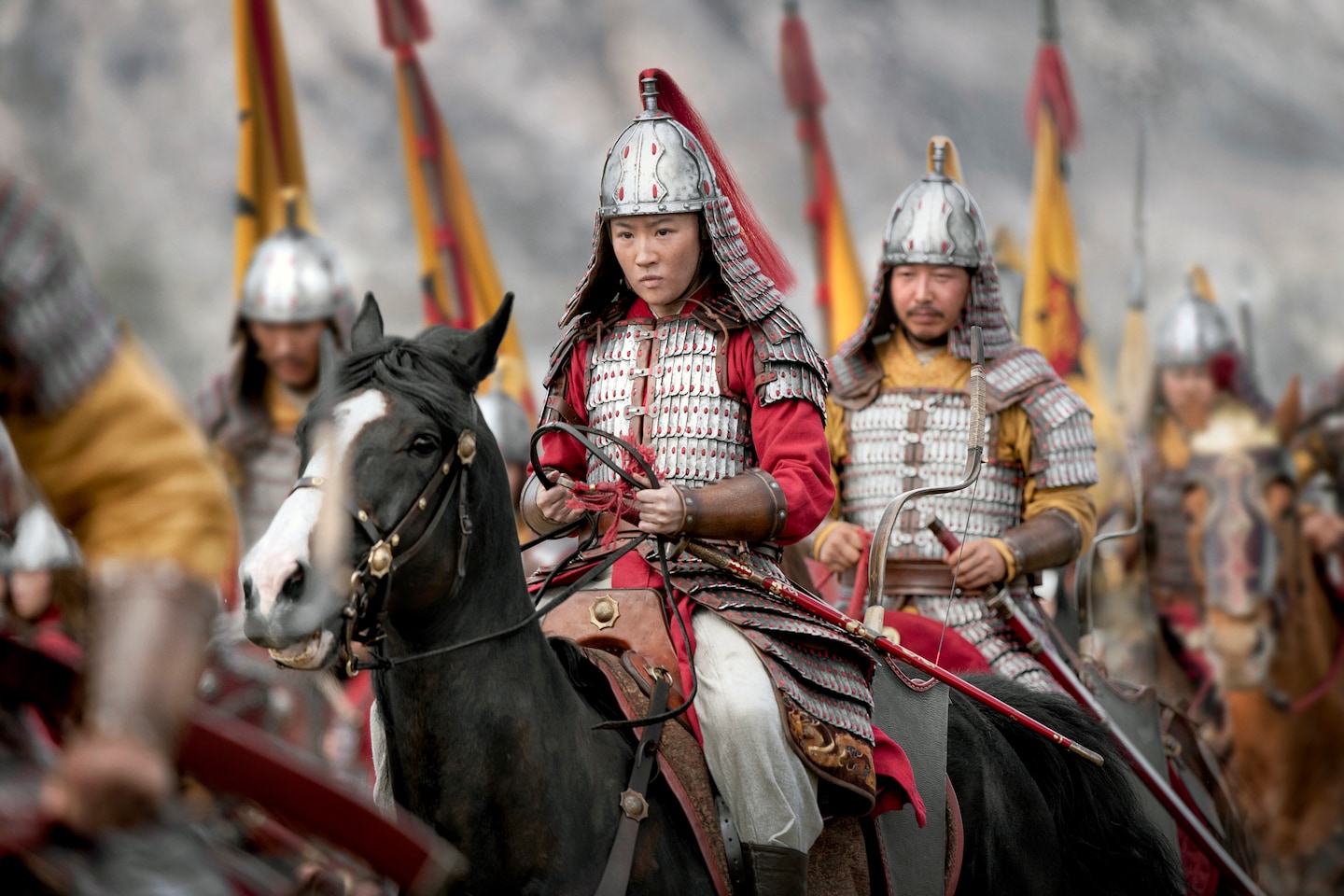The Mulan backlash over Xinjiang is a battle Disney didn’t want
[ad_1]

In 2020, the picture is different in more ways than one. China has gone from being a sleeping giant — whose potential market piqued U.S. companies and politicians alike — to a power now locked in tense competition with the United States. And Disney’s new live-action reboot of “Mulan,” a humorless successor to the more beloved cartoon, is now in the middle of that confrontation. “Mulan” debuted on Disney’s streaming platform last Friday, and has already been released in theaters in parts of Asia, with plans to open in China later this week. Activists elsewhere, though, are calling for a global boycott.
The trouble began last year, when Liu Yifei, the film’s Chinese-born lead actress, posted on Chinese social media site Weibo in defense of Hong Kong’s police cracking down on pro-democracy protesters. It was one of the earlier shots across the bow in a brewing global culture war that has forced U.S. companies and organizations invested in China, from Hollywood to the NBA, to reckon with the widening divide between Beijing and Western governments.
Yet Liu’s remarks seem minor when set against what’s in the film’s closing credits, which offer “special thanks” to eight political entities, including four propaganda departments and a public security bureau in the far-western region of Xinjiang, for assistance in the shooting of the film. The region is the site of breathtaking landscapes and the old caravan towns and camel-trodden pathways of the historic Silk Road.
But Xinjiang is also, of course, where the Chinese regime has embarked on a shocking campaign of repression and mass detention of ethnic minorities. A Chinese-led “anti-extremism” campaign has cast a 21st-century Orwellian dragnet over the region and forced an estimated 1 million Uighurs and other Turkic Muslim minorities into so-called reeducation camps. Numerous detainees and their family members have alleged torture and other abuse at the hands of authorities, who seem bent on suppressing Uighur and Muslim identities.
Reports and government data on forced sterilizations of Uighur women have prompted some international experts to argue that what’s happening in Xinjiang is a form of genocide. It’s unclear what the “Mulan” film crew did in the region, since the bulk of the film was shot in New Zealand. But observers noted that, on scouting trips or other forays, the crew could have driven by detention centers where Uighurs and others were being held.
“Why did Disney need to work in Xinjiang? It didn’t,” wrote Isaac Stone Fish for The Washington Post’s opinion pages. “There are plenty of other regions in China, and countries around the world, that offer the starkly beautiful mountain scenery present in the film. But in doing so, Disney helps normalize a crime against humanity.”
Disney sees China as essential to the expansion of its business. China’s box office revenue was expected to surpass the United States in 2020 even before the coronavirus pandemic hit. The appeal of Chinese viewership has even left a mark on Hollywood casting: One recent academic study found an increase in “very light-skinned” lead actors since 2012. “The researchers concluded U.S. film studios were casting to fulfill the aesthetic preferences of Chinese movie-goers, in a culture that places a premium on light skin — a phenomenon known as colorism,” noted Bethany Allen-Ebrahimian of Axios.
Beyond movies, Disney worked closely with Chinese authorities over many years to launch Shanghai’s multibillion-dollar Disneyland resort in 2016. Disney CEO Bob Iger said at the time that it was “a big shining example of the fact that an American company or any kind of global company can do something on a really grand scale here in China.”
But rising U.S.-China tensions have changed the equation. “Western consumers used to be indifferent enough to Chinese politics that Western executives did not have to factor it into their business plans — especially for something as seemingly anodyne as a children’s film reboot,” wrote my colleague Eva Dou. “The trade war with the United States has contributed to this shift, as have China’s heavy-handed crackdowns in Hong Kong and Xinjiang, which have struck a nerve with Western consumers.”
When the Hong Kong protests captured global headlines last year, Iger remained silent, acknowledging at a conference that speaking out could be bad for business.
“Mulan” isn’t just problematic because of its credits. Critics also argue that Disney has taken a rich legend, steeped in folklore and complicated histories, and repackaged it into a modern-day Chinese nationalist drama.
“The rotten heart of Mulan as a film, rather than its production process, is the accidental regurgitation of China’s current nationalist myths as part of a messy, confused, and boring film,” wrote Jeannette Ng in Foreign Policy. “The title card fades into a location said to be the ‘Silk Road, Northwest China.’ This is, of course, Xinjiang — here set up by the narrative frame as an inalienable part of China that Mulan must defend for her father, her family, and her emperor.”
But, Ng added, that’s “not the historical reality — or even the reality of the original poem the stories are based on, which depicts Mulan as the servant of a khan of the Northern Wei dynasty, not an all-powerful Chinese emperor.”
“Mulan is a patriot but she shouldn’t be placed in Xinjiang, because patriotism has been forbidden in Xinjiang,” Abduweli Ayup, a Norway-based Uighur rights activist who has joined calls for a boycott of the film, told the Wall Street Journal. “In China, patriotism is loving the Chinese Communist Party.”
